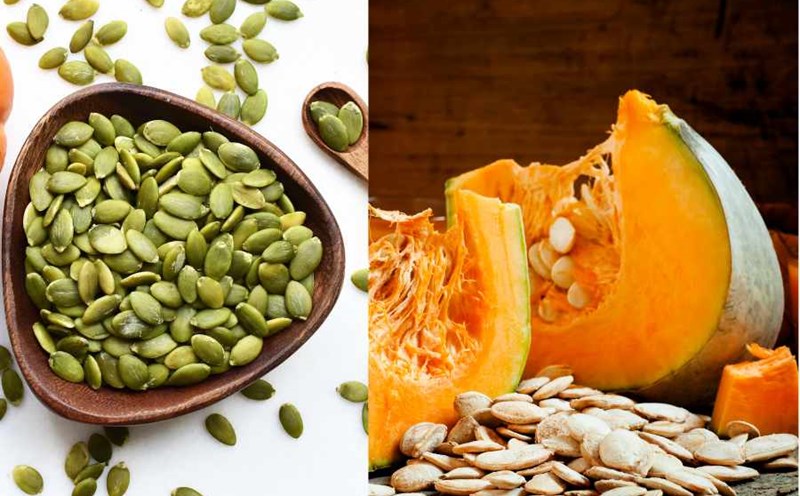Pumpkin seeds are not only a delicious dish but also bring many health benefits, especially in improving sleep quality. However, the question is: When to eat pumpkin seeds to achieve the best sleep effect?
One of the important factors for quality sleep is providing enough tryptophan for the body. Tryptophan is an essential amino acid that helps the body produce serotonin, which is then converted into melatonin, the hormone that regulates sleep. Research from the National Institutes of Health shows that tryptophan plays an important role in promoting good sleep. Pumpkin seeds are a rich source of tryptophan, so eating pumpkin seeds before bed can help increase melatonin production, making it easier for the body to fall asleep.
The ideal time to eat pumpkin seeds is about 1-2 hours before bed. A study published in the Journal of Sleep Research shows that eating foods rich in tryptophan in the evening can help improve sleep quality, helping participants fall into sleep easily and maintain sleep for longer.
Pumpkin seeds, in addition to tryptophan, also contain magnesium, a mineral that can relax muscles and the nervous system. Research shows that magnesium can help reduce stress and anxiety, facilitating deeper and better sleep.
Some nutritionists recommend eating a small amount of pumpkin seeds in the evening, about 1 handful (about 30g) to prevent the body from being overloaded with calories before going to bed. Consuming pumpkin seeds at this time will provide essential nutrients without causing a feeling of fullness, helping the body relax while still maintaining energy for sleep.
Eating pumpkin seeds about 1-2 hours before bed is the ideal time to take advantage of the benefits of pumpkin seeds in improving sleep quality. Thanks to the content of tryptophan and magnesium, pumpkin seeds can help the body easily switch to a state of relaxation, supporting better and deeper sleep.











